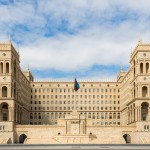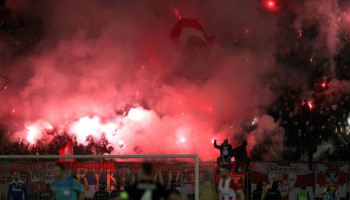Following the assassination of Vukotić on the evening of September 8, when two attackers on a motorcycle opened fire at Vukotić’s car in Istanbul’s Sisli neighborhood, the Istanbul Police Anti-Organized Crime Branch and Intelligence Directorate launched an extensive investigation, the police said in a statement.
The operation resulted in the arrest of 12 suspects, including Radoje Živković and Zdravko Perunović, who are believed to be the actual assassins. Istanbul police did not reveal the identities of other detained suspects.
During the operation, conducted on September 16, police also seized 11 fake IDs, six fake passports and two guns, suspected of having been used in the attack, read the statement.
The Škaljari leader Vukotić, was expelled from Turkey three years ago and handed over to Serbian authorities, as he was wanted in Serbia and Montenegro. He, however, managed to escape and illegally return to Turkey.
The suspected killers – Živković and Perunović – have been known from the indictment of the Montenegrin Prosecutor, as high-ranking members of the Škaljati’s opponent clan – the Kavač.
The indictment was filed against 14 members of the Kavač clan, led by Radoje Zvicer and Slobodan Kašćelan. Both are suspected of torturing and killing their rivals, according to Serbian investigative news outlet KRIK.
The Serbian media speculates that Radoje Zvicer has ordered Vukotić’s murder in Istanbul after multiple prior attempts to kill him in Serbia and Montenegro had failed.
Radoje Živković, nicknameed Žuti (Yellow), is reportedly a close relative of Zvicer, and his name has been linked to many other attempts against members of the rival gang.
Both the Kavač and Škaljari clans originate from Kotor at the Adriatic coast. Their members used to smuggle cocaine from South America into Europe together but split over a bad deal in 2014.
The ensuing conflict has ruptured the criminal underworld in Serbia and Montenegro, prompting other crime groups, and even some police and politicians, to pick sides.
The conflict has claimed the lives of dozens of people in countries of former Yugoslavia and beyond, as the gangs battle to control routes for smuggling cocaine from South America to feed Europe’s 5.7 billion-euro-a-year habit.






